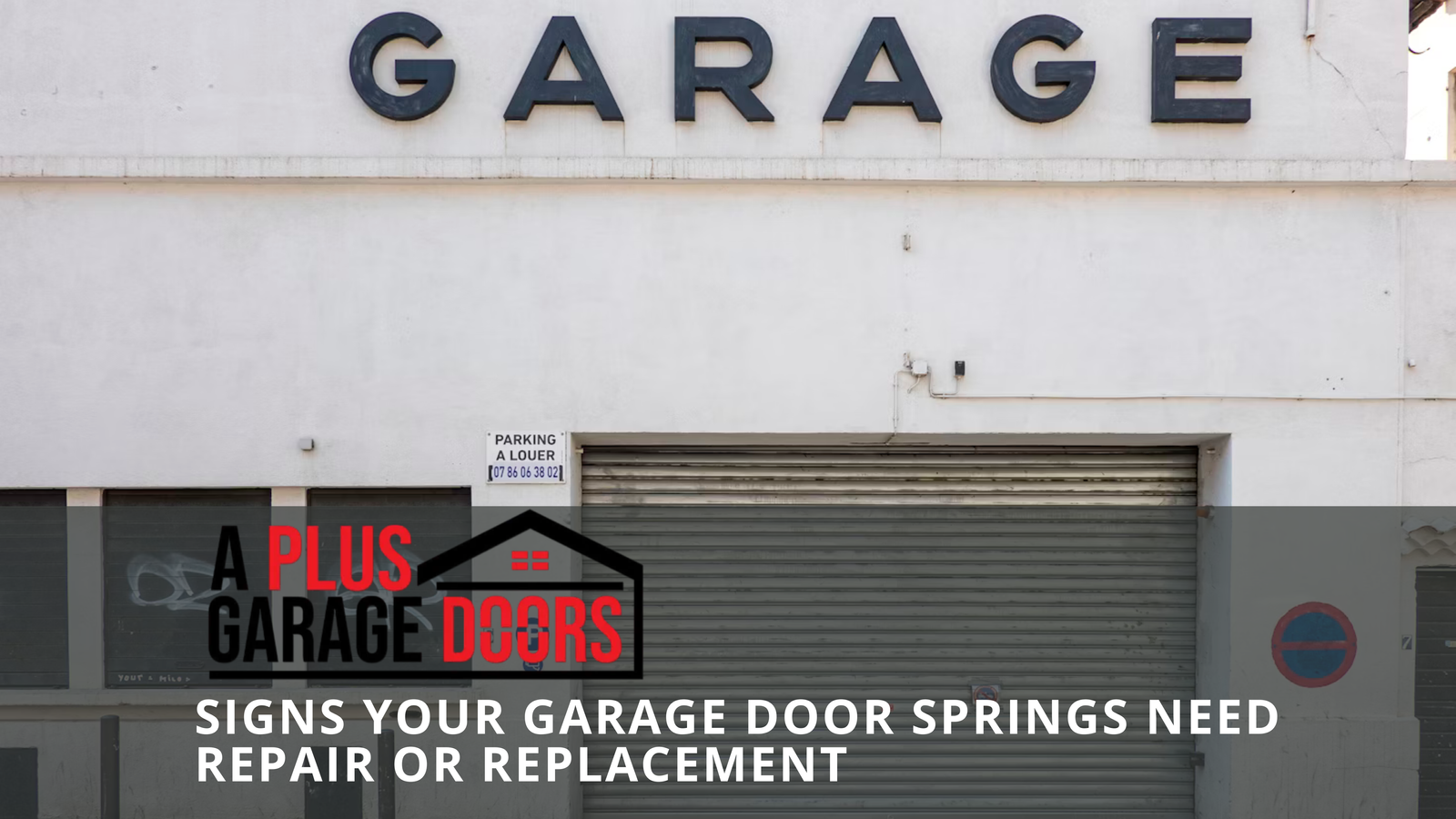Garage door springs are essential components that help lift and lower your garage door smoothly. These springs bear a significant amount of tension and weight, allowing the door to operate safely and efficiently. Over time, however, wear and tear can cause springs to weaken, break, or malfunction. Ignoring these warning signs can lead to door failure, damage to other components, or even serious injury.
In this blog, we’ll cover the most common signs that your garage door springs need repair or replacement and why timely attention is crucial.
Understanding Garage Door Springs
There are two main types of garage door springs:
- Torsion Springs: Mounted above the door, these springs twist to provide lifting power.
- Extension Springs: Located on either side of the door’s tracks, these springs stretch to balance the door’s weight.
Both types perform the same function but operate differently. Regardless of the type, garage door springs are under high tension and require professional handling.
Top Signs Your Garage Door Springs Need Repair or Replacement
1. Garage Door Is Difficult to Open or Close
If your garage door feels heavier than usual or requires excessive effort to open or close manually, it may indicate that the springs have lost tension or are damaged. Springs support the door’s weight, so when they weaken, the door becomes harder to lift.
This is often the earliest sign of spring trouble and should not be ignored.
2. Visible Gaps or Breaks in the Springs
A clear and unmistakable sign is when you notice a visible gap or break in the coil of the spring. This means the spring has snapped and is no longer functional.
A broken spring can cause your garage door to become stuck, drop suddenly, or operate erratically. This requires immediate professional replacement.
3. Loud Noises When Operating the Door
If you hear a loud banging, snapping, or popping noise when your garage door opens or closes, it could be due to a spring breaking or failing. These sounds indicate that the springs are under excessive strain or are already damaged.
Addressing noisy springs early prevents more costly damage to the door or opener.
4. Uneven Door Movement or Slanting
If your garage door moves unevenly or one side appears to be lower than the other while opening or closing, the springs may be unbalanced or one spring may be broken.
Unequal tension causes stress on the door and can lead to track damage or other mechanical failures.
5. Door Doesn’t Stay Open
A healthy spring keeps the door balanced and stable when fully opened. If the door unexpectedly falls or doesn’t stay open, this could mean the springs are failing to hold the door’s weight.
This is a safety hazard and should be repaired promptly.
6. Visible Rust or Wear on Springs
Corrosion or rust weakens the metal, making springs more prone to breaking. If you see visible rust or excessive wear on your garage door springs, it’s a sign they may fail soon.
Regular maintenance and lubrication can slow rusting, but replacement is often necessary once damage sets in.
Why Prompt Repair or Replacement Matters
Ignoring worn or broken garage door springs can lead to:
- Increased Safety Risks: Springs under tension can snap unexpectedly, potentially causing injury or property damage.
- Damage to Other Parts: A broken spring places extra strain on cables, rollers, and the garage door opener, leading to costly repairs.
- Door Malfunction: Your garage door may become stuck, drop suddenly, or fail to close completely, compromising home security.
- Complete System Failure: Prolonged neglect can result in the need for full door or opener replacement.
Can You Repair Garage Door Springs Yourself?
Garage door springs are under extreme tension and can be dangerous to handle without proper tools and training. Attempting DIY repair or replacement risks serious injury.
It’s highly recommended to hire a professional garage door technician for spring repairs or replacements. They have the expertise, tools, and safety equipment needed to perform the job correctly and safely.
Maintenance Tips to Extend Spring Life
- Lubricate Springs Regularly: Use a silicone-based lubricant to reduce friction and prevent rust.
- Balance Your Door: Have a professional check the door balance annually to ensure springs are functioning correctly.
- Inspect Springs Periodically: Look for early signs of wear, like rust or gaps.
- Avoid Forcing the Door: If the door is hard to open, have it inspected rather than forcing it.
Final Thoughts
Garage door springs are critical for safe and efficient door operation. Recognizing the signs of wear, damage, or failure helps you act before small problems become expensive or dangerous.
If you notice any of these warning signs, difficulty opening, loud noises, uneven movement, or visible damage, contact a trusted garage door repair professional immediately. Timely spring repair or replacement ensures your garage door remains reliable, safe, and secure.



